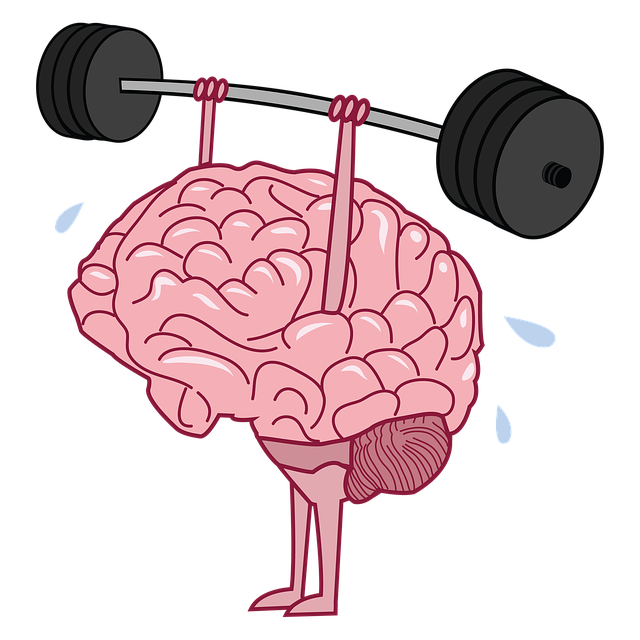Lone Tree Hebrew Speaking Therapy leverages community outreach to significantly enhance its impact by offering accessible, culturally relevant mental wellness support tailored to diverse audiences. Their successful strategies include initiatives like a Mental Wellness Journaling Exercise and a podcast series, empowering individuals, promoting awareness, and fostering community wellness. By understanding unique needs through dialogue and research, setting clear objectives, partnering with local leaders and leveraging digital platforms, they ensure program relevance and community ownership. Measuring success through metrics refines strategies, driving positive mental health change and creating inclusive, supportive communities.
Lone Tree Hebrew Speaking Therapy has recognized the power of community outreach as a game-changer in providing accessible therapy services. This article explores the implementation of effective outreach programs, offering a step-by-step guide for healthcare providers aiming to engage their local communities. From understanding the significance of community integration to overcoming challenges and measuring success, we delve into strategies that foster lasting relationships and enhance therapeutic outcomes, specifically tailored to meet the unique needs of Lone Tree Hebrew Speaking Therapy’s target audience.
- Understanding Community Outreach: Why It Matters for Lone Tree Hebrew Speaking Therapy
- Designing Effective Programs: A Step-by-Step Guide for Engaging the Community
- Implementation Strategies: Overcoming Challenges and Measuring Success
- Building Lasting Relationships: Fostering Community Engagement at Lone Tree Hebrew Speaking Therapy
Understanding Community Outreach: Why It Matters for Lone Tree Hebrew Speaking Therapy

Community outreach is a powerful tool that can significantly benefit organizations like Lone Tree Hebrew Speaking Therapy. By extending services and resources to diverse communities, this therapy center can foster a deeper connection with its target audience. Understanding community outreach involves recognizing the importance of accessibility and cultural relevance in mental wellness support. Many individuals, especially those from unique linguistic backgrounds, may face barriers when seeking therapeutic assistance due to language or cultural differences.
Lone Tree Hebrew Speaking Therapy has the potential to make a substantial impact by implementing tailored programs that address these specific needs. The Mental Wellness Journaling Exercise Guidance can be adapted to incorporate cultural elements, making it more relatable and encouraging participation. Additionally, producing a Mental Wellness Podcast Series focused on diverse communities could offer valuable insights and serve as a platform for raising awareness about various mental health topics, thereby enhancing overall community wellness and boosting confidence through knowledge sharing.
Designing Effective Programs: A Step-by-Step Guide for Engaging the Community

Designing Effective Programs: A Step-by-Step Guide for Engaging the Community
The success of community outreach programs, such as those offered by Lone Tree Hebrew Speaking Therapy, hinges on a well-thought-out strategy that fosters engagement and connection. The first step is to identify the specific needs and interests of your target audience. This involves conducting thorough research and engaging in open dialogue with community members to understand their concerns and aspirations. Incorporating this feedback ensures that the program aligns with the community’s unique requirements, fostering a sense of ownership and participation.
Moving forward, it’s crucial to set clear objectives and outcomes. Define measurable goals that address the identified needs, whether it’s enhancing Emotional Intelligence, promoting Positive Thinking, or facilitating Mental Illness Stigma Reduction Efforts. These objectives should be communicated effectively to both the community and the program implementers to maintain focus and ensure everyone is working towards a common vision.
Implementation Strategies: Overcoming Challenges and Measuring Success

Implementing community outreach programs, such as those offered by Lone Tree Hebrew Speaking Therapy, requires a strategic approach to overcome challenges and ensure success. One key strategy is to involve local leaders and organizations, leveraging their knowledge and trust within the community. By partnering with schools, churches, and cultural centers, the program can gain visibility and access to diverse populations. Additionally, utilizing digital platforms for promotion and engagement, especially during the current digital era, allows for broader reach and inclusivity.
Measuring success is crucial for any outreach initiative. For Lone Tree Hebrew Speaking Therapy, this could involve tracking the number of individuals reached through workshops on crisis intervention guidance or healthcare provider cultural competency training. Monitoring participation rates in depression prevention programs can also provide valuable insights into the impact of the outreach efforts. Regular feedback from community members and stakeholders will further help refine strategies, ensuring that the program addresses the most pressing needs and delivers tangible benefits to the community it serves.
Building Lasting Relationships: Fostering Community Engagement at Lone Tree Hebrew Speaking Therapy

At Lone Tree Hebrew Speaking Therapy, we understand that building strong relationships with the community is key to fostering engagement and creating lasting positive change. Our approach involves actively listening to the unique needs of our neighbors and tailoring our initiatives accordingly. By organizing events like stress management workshops, mood management seminars, and depression prevention programs, we bring people together in a safe and supportive environment.
Through these activities, Lone Tree Hebrew Speaking Therapy aims to empower individuals with practical tools for managing mental health while building a sense of belonging within the community. This collaborative effort not only enhances overall well-being but also strengthens the social fabric that binds us all. By fostering open dialogue and providing accessible resources, we strive to create an inclusive space where everyone feels valued and supported.
Lone Tree Hebrew Speaking Therapy has successfully demonstrated that community outreach programs can be a game-changer in fostering engagement and enhancing therapeutic services. By implementing these initiatives, the therapy center not only overcomes isolation but also builds a vibrant network of support. The step-by-step guide and successful strategies outlined in this article offer a roadmap for other institutions to replicate and adapt, ultimately strengthening community ties and improving overall well-being. Through sustained effort and collaboration, Lone Tree Hebrew Speaking Therapy continues to revolutionize local healthcare with its inclusive outreach approach.














